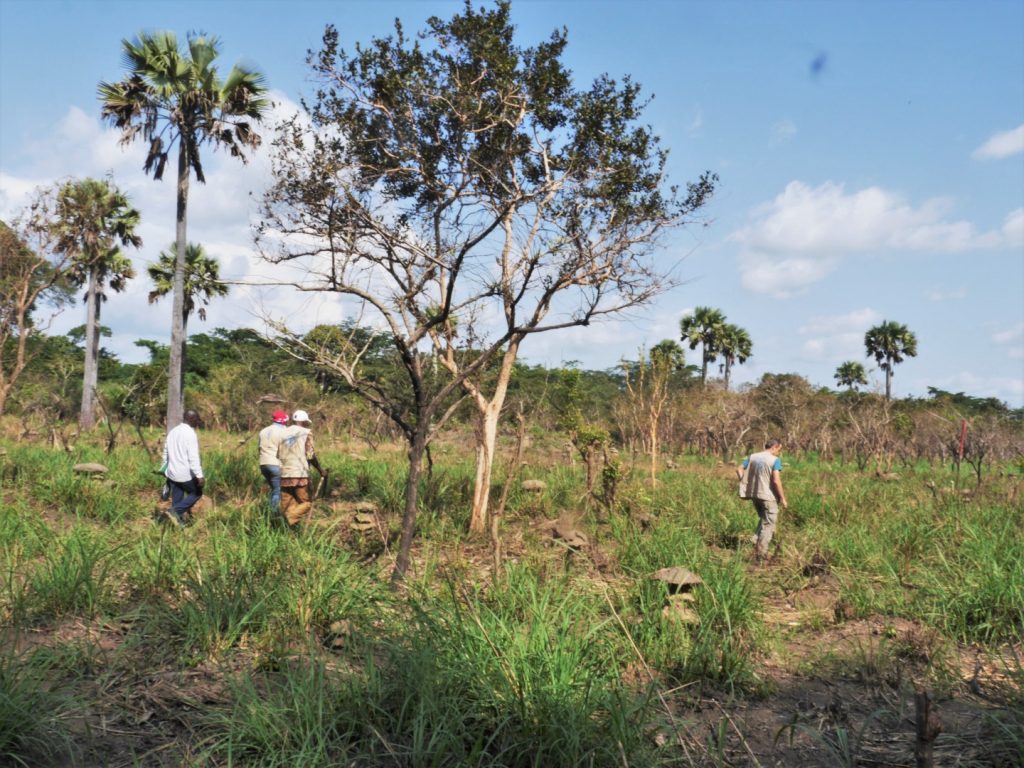Au cœur de l'Afrique, à L'Initiative de Restauration (TRI) est de s'attaquer aux graves de la dégradation des forêts dans cinq zones différentes dans les régions du sud de Bangui, Mbaïki, Bayanga, et Pissa, de la République centrafricaine. Cette région, une fois grouillant de la biodiversité, a été dégradée en raison de pratiques agricoles non durables et de la surexploitation des ressources en bois. TRI du projet en VOITURE se concentre sur le développement de pépinières, les partenariats public-privé, de l'agroforesterie, de la capacité du gouvernement du bâtiment, et de l'activation et de faire participer les communautés locales.
Du TRI des efforts de restauration dans la VOITURE sont centrées autour d'adressage de la grave dégradation de la forêt causé par des pratiques agricoles non durables et de la surexploitation des ressources en bois. Ces domaines dans la VOITURE une fois vanté certains de l'Afrique les plus grandes forêts tropicales, et sont aujourd'hui menacés par slash-and-burn agriculture et l'exploitation forestière. Le projet a été de travailler pour élever et maintenir la protégée reste de ce qui était autrefois la troisième plus grande couverture forestière en Afrique. Du TRI approche combine les partenariats public-privé et direct à la communauté pour restaurer les terres dégradées et de réhabiliter abandonné les zones agricoles, visant à la restauration de la fertilité des sols et de la biodiversité.
L'agroforesterie et de la Communauté
Le TRI du projet dans la VOITURE a fait des progrès notables dans la restauration des paysages dégradés. Le projet a permis de restaurer 501 hectares de terres dégradées par la plantation d'essences locales. Ces efforts ont permis d'améliorer significativement la santé écologique de la région, l'augmentation de la valeur des services écosystémiques essentiels tels que la protection contre les tempêtes, l'amélioration de la productivité des sols, et l'augmentation du stockage du carbone.
L'état d'avancement du projet a été en grande partie expliquée par la participation de la communauté autochtone. Une grande composante de la du TRI des efforts de restauration implique la communauté d'élévation spirituelle et d'engagement, et à la reforestation de la VOITURE n'a pas été différent. La majeure partie du projet, une attention a été orientée vers la formation, la diversification de la génération de revenus, le renforcement des capacités, le développement des crèches, et de soutenir les habitants dans le but de prolonger l'impact du projet et de maintenir une gestion durable des terres aller de l'avant. Par conséquent, 4,630 les gens ont apprécié la variété de l'économie, des avantages sociaux et environnementaux. En équipant collectivités locales avec les compétences et connaissances nécessaires, le projet a favorisé un fort sens de la gérance de l'environnement et de l'appropriation par la communauté. En outre, compte tenu du taux de pauvreté en République centrafricaine, en offrant un plus large éventail de possibilités de génération de revenus est une composante essentielle du développement durable.
Des Cadres politiques pour la Gestion Durable des Terres
Une critique de la réalisation du TRI du projet dans la VOITURE a été sa contribution à l'élaboration des politiques. Le projet a facilité la révision du pays, du Code Forestier et le développement d'une filière Bois Énergie de la Gestion des Ressources Plan directeur pour l'Bangui/Bimbo de la zone de captage. Ces politiques fournissent un cadre solide pour la gestion durable et la restauration des écosystèmes forestiers, en veillant à la viabilité à long terme des impacts positifs du projet.
Confrontée à des défis tels récurrents d'instabilité socio-politique et une crise énergétique qui affecte la logistique et les activités de restauration, le projet n'a pas été sans ses propres obstacles. Pour répondre à ces défis, le projet a mis l'accent sur le développement des forêts communautaires et la promotion de pratiques agricoles durables. Cela comprend la mise en place de pépinières pour produire des plants, en fournissant des habitants avec la formation au respect de ces pépinières, et la mise en œuvre de la restauration des écosystèmes avec les espèces locales.Les peuples autochtones font partie intégrante du processus de restauration du paysage et de TRI a travaillé en étroite collaboration avec les gens de VOITURE, pour rajeunir et revitaliser la terre. TRI VOITURE s'est avérée être une solution mutuellement constructives et bénéfiques processus, avec les communautés locales bénéficient de l'évolution économique et de la formation, et l'équipe de projet optimisation de stratégies de restauration avec l'aide précieuse de connaissances autochtones. En outre, La République centrafricaine a soumis un projet à la PMA en se concentrant sur l'adaptation au changement climatique du bâtiment sur le TRI des interventions.
